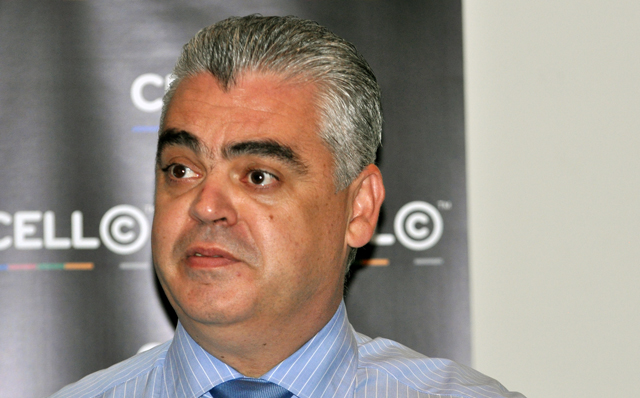
Cell C acting CEO Jose Dos Santos has accused his counterpart at MTN South Africa, Zunaid Bulbulia, of crying wolf over termination rates. Dos Santos has described claims Bulbulia made in an exclusive interview with TechCentral this week as “exaggerated and misleading”.
Bulbulia accused telecommunications regulator Icasa of behaving “irrationally” and threatening future investments in network infrastructure through its plan to cut wholesale mobile call termination rates from 40c/minute to 10c/minute over the next three years and to introduce aggressive “asymmetry” that benefits smaller operators Cell C and Telkom Mobile. He argued that there was no demonstrable link between cuts in termination rates and reductions in retail tariffs.
Termination rates are the fees operators charge each other to carry calls between their networks. Icasa is reducing the rates in the hope the savings will be passed on to consumers in the form of lower retail tariffs. Bulbulia told TechCentral that Icasa’s proposals, if implemented, would cause “shock” to the industry and lead to a decrease in capital expenditure by the big operators.
But Dos Santos says MTN made the same claims in 2010, when a first round of call termination regulations were under discussion.
“The threats of ‘business shock’ and disinvestment were demonstrably wrong then, given the capex and Ebitda trend of MTN South Africa from 2010, and Cell C sincerely doubts their accuracy this time around, too.” Ebitda is earnings before interest, tax, depreciation and amortisation.

According to Dos Santos, operators that have significant market power in South Africa “actually improved their Ebitda margins” following previous cuts to termination rates. This, he says, shows that a reduction in the rates is “simply not enough to constrain market power and promote competition”.
“Cell C believes asymmetry should be considered as a pro-competitive remedy in a market with operators that have significant market power (85% of the market between them), to ensure sustainable competition and real benefits for consumers.”
Icasa has proposed “asymmetry” for operators with less than a quarter of the market. Under the asymmetry rules, Cell C and Telkom Mobile will enjoy a wholesale rates regime that is skewed in their favour.
But Bulbulia told TechCentral that asymmetry made no sense given that Cell C has been in the market for more than 12 years. “Nowhere in the world does asymmetry last beyond three years. We find no justification whatsoever for this,” he said.
But Dos Santos has hit back, saying there are many examples where asymmetry has lasted longer than three years. “Cell C’s benchmarking study shows that the average length of asymmetry in several countries was eight years. MTN and Vodacom still enjoy asymmetry against Telkom after almost two decades.”
Dos Santos says MTN group CEO Sifiso Dabengwa acknowledged, in an interview with Bruce Whitfield on Talk Radio 702 in August, that “Cell C has been driving price competition, noting that MTN had been slow to respond to competitive pricing”.
“It is this competition that MTN clearly fears and the consequential retail price reductions that competition will bring. Whether this results in a reduction in MTN’s profit will depend on how it manages its business,” Dos Santos says.
“Cell C has always maintained that retail prices are too high because of the lack of competition in the market. It is our view that pro-competitive remedies are called for to address the historical imbalance in the market, which is still in place.” — (c) 2013 NewsCentral Media
- See also: MTN SA could pull capex plug: CEO




